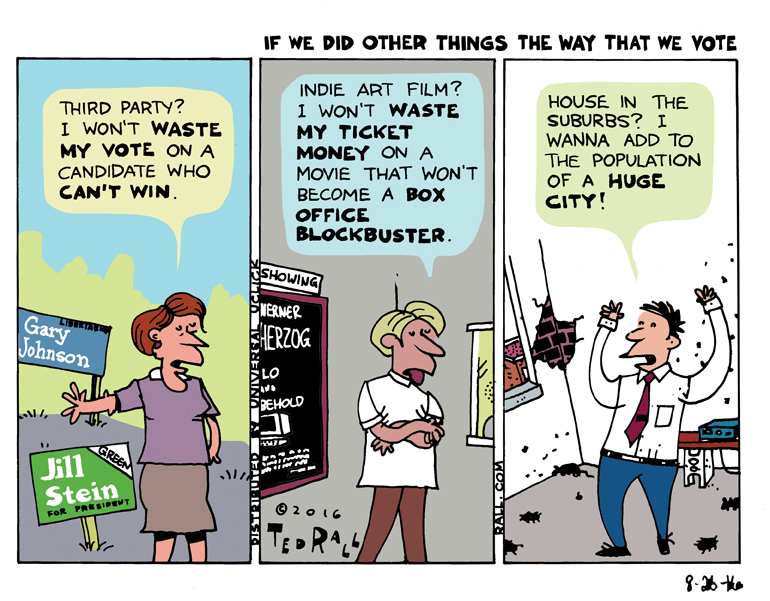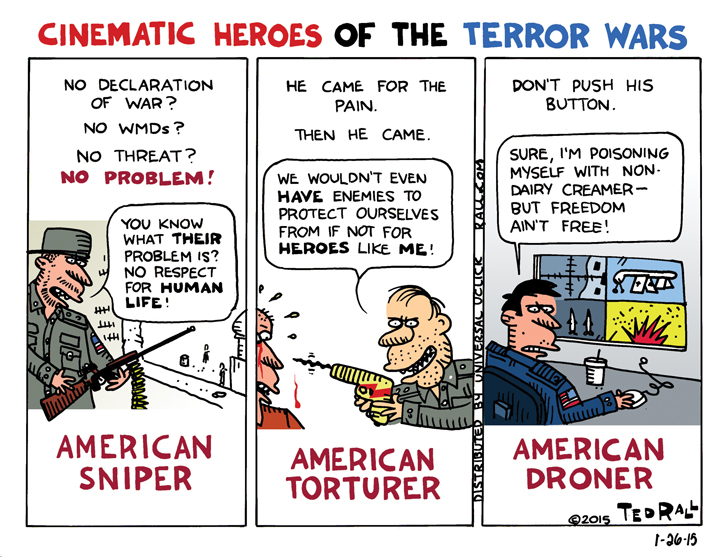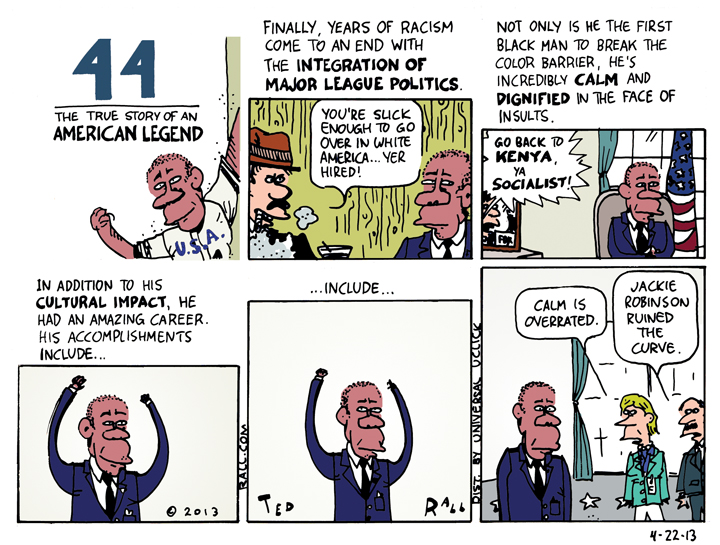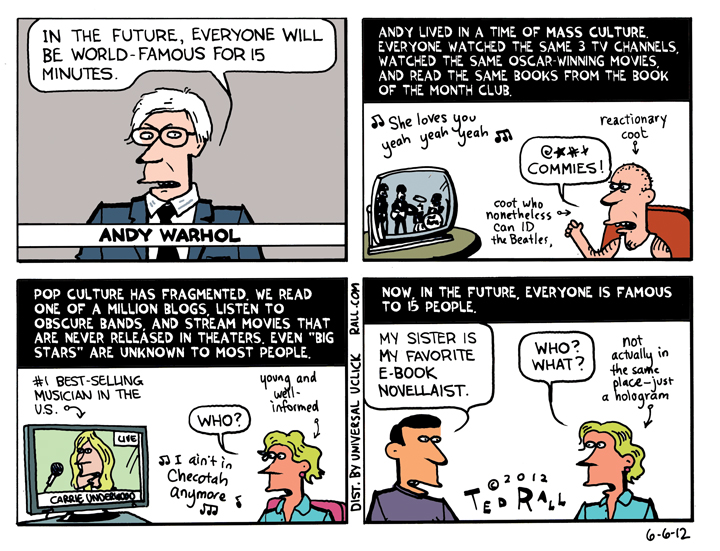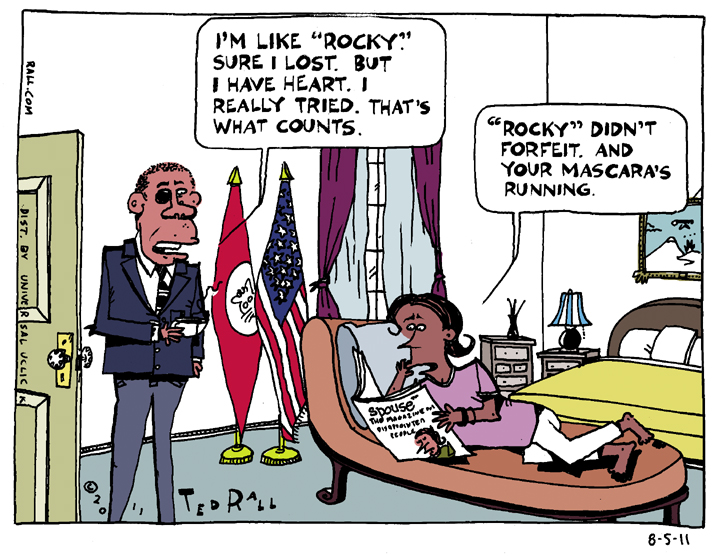In the classic film “It’s a Wonderful Life,” actor Jimmy Stewart plays a banker who explains why he doesn’t have the money to fulfill the demand during a bank run. Silicon Valley Bank and Signature Bank collapsed in a different era, one of confusion.
Wanted: Continuity Editors

The world needs more continuity editors.
Filmmakers hire them to check for plot holes. Like, in “Forrest Gump” the lead character’s friend Lieutenant Dan couldn’t have invested their money in Apple Computer in 1976, because the company didn’t go public until four years later. Or, in “Pulp Fiction” when hitmen played by Samuel L. Jackson and John Travolta narrowly avoid being shot, the bullet holes appear in the wall behind them before the first shot is fired.
Continuity editors ensure that a movie makes sense, has a consistent look, sound and feel throughout, and moves at the right pace or combination of paces. They axe scenes that don’t advance the plot and insert new ones to fill in explanations and backgrounds in order to smooth out awkward transitions.
They track the big picture.
Hollywood isn’t the only place that needs them.
As the United States keeps sliding its slimy way through economic and sociopolitical decline toward the bubbly brown pit of collapse, our desperate need for people tasked with keeping track of the big picture and given the power to fix inconsistencies—or have access to those with that power—becomes increasingly apparent.
The biggest, most storied organizations have a C-something-O for everything from CFO to CIO to CTO to CDO (diversity). Few (I’d say all but I must allow for the fact that I do not and cannot know everything and everyone) employ a person who brings an outsider’s viewpoint to the deep inside of a corporate boardroom.
Large news organizations like The New York Times, for example, compile, process and disseminate a product whose breadth and depth objectively looks and feels like a miracle every single day. Yet the Times would benefit from an editor with a bird’s-eye view.
Because the left hand of the New York Times Book Review, a Sunday supplement, doesn’t know what the right hand of the features editors who labor in the daily editions is up to, the paper often runs two or even three reviews of the same title. Meanwhile, it fails to review most titles entirely.
Pundits on the op-ed page and analysts in the business section crank out one prognosis after another, but no one ever analyzes their record of success or failure in order to determine whether they are worth paying attention to (I’m looking at you, Thomas Friedman).
Newspapers don’t see what’s missing; a country whose voters are 38% pro-socialist might like a socialist opinion columnist. No one ever takes a beat to consider the possibility that a nation in which R&B/hiphop has dominated music charts for years might not respond well to a music section in which jazz (1% of sales) and classical (also 1%) receives disproportionately high coverage.
Our for-profit medical system is sorely lacking in many respects. One that leaps out is how à la carte recordkeeping makes it so that no one other than the patient themself enjoys comprehensive knowledge of a person’s health.
My general practitioner, for example, maintains records of my vaccinations, lab test results, examination history and back-and-forth communications. She does not, however, have access to the files and test results collected by my pulmonologist or other specialists, some of whom I see outside my insurance network. Nor can she see the stuff from my local urgent care clinic or the doctors I’ve seen in other states or other countries, or hospital emergency rooms, or from physicians I saw in the past but who have since retired. My dental records, themselves segregated between a dentist and an orthodontist, are similarly inaccessible to my GP. This is the result of the artificial insurance divide between dental and medical care that persists despite the proven link between oral health and such “non-dental” ailments as Alzheimer’s, diabetes, stroke and heart disease. Eye care falls into the same “non-medical” category—again, contrary to science and common sense. No one has a comprehensive understanding of Ted Rall’s medical history except Ted Rall—and he didn’t go to medical school.
Everyone ought to be assigned to a big-picture medical professional who pores over all these records in search of patterns that may indicate an undiagnosed illness. Many lives could be saved; hell, insurance companies save cash when patients detect problems early, not that I care about those scum. But Americans are so accustomed to dysfunction (in this case, non-function) that we haven’t even begun to discuss the need for an integrated medical records database accessible by any licensed medical professional, much less a caste of medical analysts whose job it is to try to anticipate problems.
Like most societal shortcomings, our continuity editor-lessness comes straight from the top of the class divide: political and corporate elites. As much as our CEOs’ and political leaders’ smallmindedness is casting us adrift, no one is suffering higher opportunity costs than they are. A national high-speed rail system—the kind every other advanced country has—would open up development of new manufacturing, work and living spaces all over the nation. It would cost at least $1 trillion.
So it won’t happen any time soon.
But we spend three-quarters of a trillion bucks on “defense” every year—a budget replete with waste before you consider that the entire purpose of military spending is not merely wasteful but obscenely destructive. Slash 95% of that crap and national security would not suffer one whit. To the contrary, it would free up billions for worthwhile programs like making college free, modernizing public schools and a socialized healthcare system. Building new sectors and infrastructure from scratch generates more profits than maintaining what already exists. But they can’t even begin to think about thinking about such things, much less see them.
If and when the Revolution arrives, some of the formerly-rich may think to themselves as they journey atop their tumbrels: I should’ve hired a continuity editor.
(Ted Rall (Twitter: @tedrall), the political cartoonist, columnist and graphic novelist, co-hosts the left-vs-right DMZ America podcast with fellow cartoonist Scott Stantis. You can support Ted’s hard-hitting political cartoons and columns and see his work first by sponsoring his work on Patreon.)
SYNDICATED COLUMN: No Way Would Today’s Newspapers Publish the Pentagon Papers

Steven Spielberg’s new movie “The Post” depicts a newspaper’s decision to defy the government, risk its financial health and imprisonment of its editors in order to report a hard truth and defend the press’ First Amendment rights by publishing the Pentagon Papers.
After the Washington Post’s decision to inform the American people that top government officials had known that the Vietnam War was unwinnable yet had repeatedly lied about it for years, editor Ben Bradlee (played by Tom Hanks) dumps a pile of out-of-town newspapers on a desk for publisher Katharine Graham (Meryl Streep) to see. We’ve started a “rebellion,” Bradlee informs Graham. We’re no longer alone speaking truth to power.
No way would that happen today.
I was pleased to see that “The Post” highlights the pressures and biases that weighed against publication: a publisher undermined by sexism and low expectations, a paper trying to raise capital under the eye of nervous bankers, the Nixon Administration’s take-no-prisoners prosecutorial abuse by a vicious attorney general, and — not least — the Post’s cozy establishmentarianism, centered around Graham’s famous hard-drinking salons where reporters hobnobbed with the officials they were supposed to cover objectively.
After a lot of wavering and gnashing of lawyerly teeth, Graham finally makes the call: go to press.
The key point of this story, which isn’t made in the movie and few younger moviegoers are likely to be aware, is that it was her decision to make. The Graham family held controlling interest in the Washington Post Company. Great newspaper families like the Grahams, the Chandlers and the Sulzbergers were quirky and often had bad politics. But they also had something today’s corporate, publicly-traded media outlets do not: editorial freedom.
They didn’t always do the right thing. But they could. So sometimes they did.
Sadly, those days are gone.
Amazon CEO Jeff Bezos, reportedly a right-leaning libertarian, bought the Post in late 2013. What reception would a Daniel Ellsberg (who leaked the Pentagon Papers) or an Edward Snowden get if they contacted a Post reporter today, under Bezos?
Snowden’s case is indicative. The Post and three other papers published Snowden’s NSA leaks in 2013, months before Bezos took over. In 2016, the Bezos-owned Post called upon President Obama to refuse Snowden’s pardon application. In so doing, wrote Glenn Greenwald, the Post “achieved an ignominious feat in U.S. media history: the first-ever paper to explicitly editorialize for the criminal prosecution of its own source — one on whose back the paper won and eagerly accepted a Pulitzer Prize for Public Service.” (The other three papers were pro-pardon.)
Even more obnoxiously, the Post’s Snowden editorial didn’t mention its major conflict of interest related to intelligence agencies like the NSA. Amazon — the Post’s sister company under Bezos — had the CIA (where Snowden also worked) as a $600 million client. That’s more than twice what Bezos paid for the Post.
Coincidence? Je pense que non.
The Los Angeles Times sells “Speaking Truth to Power” hoodies. But when the power is the LAPD — and the LAPD owns the paper — the Times publishes lies.
My regular readers are familiar with the sordid details of my 2015 firing by The Los Angeles Times as a favor to LAPD Chief Charlie Beck. You’re not much of a political cartoonist in L.A. if you don’t go after the militarized, racist, violent LAPD — and the Times published many of my anti-LAPD/anti-Beck toons over the years. So did the Pasadena Weekly, which drove the boys in blue so nuts that they asked its publisher to fire me. PW refused.
Then the Times’ corporate parent, the Chicago-based Tribune Publishing, hired an LAPD-connected billionaire and wannabe politician, Austin Beutner, as publisher for the Times. Beutner appears to have midwifed a deal in which the LAPD patrolmen’s $16.4 billion union retirement fund moved to a firm that invested eight figures into a fund containing Tribune stock. (Given that newspaper stocks in general and Tribune specifically had been losing value, it’s a fair assumption that the buy was more about influence than taking care of retired LAPD officers.) Within weeks — and explicitly against Times rules — the same union issued an award to Beutner for his “support [of] the LAPD in all that they do.”
Beck asked his friend Beutner to use ginned-up “evidence” to fire and smear me; Beutner, the cop-award winner, complied, and even stayed the course after the truth came out and I was vindicated. My defamation case against Beutner and the Times is in court.
The Times never disclosed to its readers about Tribune’s business relationship with the LAPD union.
It’s a level of corruption that would make Al Capone blush. Yet it’s perfectly legal in the United States for a police union to buy a newspaper. Indeed, the same union bought part of the San Diego Union-Tribune in 2009 — and leveraged its ownership to ask that the U-T fire critics of the police.
Come to think of it, isn’t it weird that a company with more than half a billion dollars in business with the CIA is allowed to own a major news organization like the Post?
Given the Trump Administration’s attacks against “fake news” and the news media, it may seem paradoxical to suggest government action as a solution to the corruption of the news media as we’re seeing at outlets like the Washington Post and Los Angeles Times. But the evidence is clear. Outrageous deals such as those between the Post’s owner and the CIA and between the Times’ owner and the LAPD amount to government censorship of the news media — a violation of the First Amendment’s fundamental principle.
Congress should prohibit such arrangements.
(Ted Rall’s (Twitter: @tedrall) brand-new book is “Meet the Deplorables: Infiltrating Trump America,” co-written with Harmon Leon. His next book will be “Francis: The People’s Pope,” the latest in his series of graphic novel-format biographies. Publication date is March 13, 2018. You can support Ted’s hard-hitting political cartoons and columns and see his work first by sponsoring his work on Patreon.)
SYNDICATED COLUMN: “Captain Phillips” is a Beautiful Lie

“Cinéma Vérité” as Political Propaganda
Paul Greengrass is a gifted director who specializes in historical reenactments, a once marginal genre that in recent years hits the sweet spot, earning critical plaudits as well as bringing in bank (Greengrass’ “United 93,” Stephen Frears’ “The Queen,” Oliver Hirschbiegel’s “Downfall,” about Hitler’s final days in his bunker). Greengrass’ latest entry in this field is “Captain Phillips,” a retelling of the 2009 hijacking of a container ship by Somali pirates. Tom Hanks stars in the title role.
Watching this film left me with an uneasy feeling, like I’d digested a delicious meal devoid of nutrition. It was a fun drama. But I didn’t learn anything. Why not?
This is solid Hollywood filmmaking. Tight scripting, sharp editing and unpretentious cinematography deliver a story that keeps you in your seat long after you began having to pee. Hanks delivers one of his finest performances, driving a stake into his rep as an always-playing-himself actor; Barkhad Abdi is a sensational revelation as pirate leader Abduwali Muse.
But what does this film mean? What message does Greengrass convey to his audience?
In random order, here are the takeaways: leadership is tough. Bravery exacts a high cost. In an interconnected world — we watch Phillips email his wife after the pirates’ first attempt to board the Maersk Alabama — it’s nevertheless possible to be alone, isolated and vulnerable. Intermodal transport, an industry in which vast ships carrying thousands of tons of goods are piloted by an unarmed skeleton crew, is surreal. If nothing else, “Capitain Phillips” is worth watching because it opens a window into the lonely lives of the men and women responsible for keeping our store shelves stocked.
Pull out of the multiplex parking lot, however, and you quickly realize the real revelation: “Phillips” is pro-government propaganda.
Greengrass has created the most frightening kind of propaganda — so effective that for most people it will become the definitive historical account of an event. Unlike the hilariously shrill propaganda flicks of the past, from “Triumph of the Will” to Cold War-era artifacts like “Rambo” and “Red Dawn,” the new breed pretends not to editorialize. Affecting a quiet, Zoloft-inflected tone and economical, apparently straightforward scriptwriting, this movie plays it close to the vest, coming off as deadly fair and serious. Which makes it easy to miss what is left out.
This new cinéma non-vérité uses high art to sanitize history in order to elevate the imperialist, militarist geopolitical agenda of the U.S. government in its post-9/11 war on terror.
Kathryn Bigelow never scratches the surface of Osama bin Laden’s motivations in “Zero Dark Thirty.” He’s just a target, a cipher in a beard, so we don’t care when he dies. Her film is thrilling yet vacuous.
It is far from settled history that United Flight 93 was brought down by the passenger revolt — the 9/11 Commission Report leaves open the possibility that it was shot down. But that would prompt uncomfortable questions. Greengrass’ film, which unquestioningly accepts the “let’s roll” scenario, all but sets it in stone for posterity.
Ben Affleck’s “Argo” is devoid of political context, especially the historical basis for the Iranian revolutionaries’ contempt for the United States. Best not to mention the coup, the shah, corruption or torture.
American movies are about choices. Will the protagonist choose right or wrong (and which is which)? In “Captain Phillips,” however, the ethical quandaries rest not on Hanks’ character, who handles his ordeal as courageously and competently as you could expect, but on Abdi’s shoulders. It’s more than a little odd.
“We are just fisherman,” Abdi explains after seizing control of the vessel. Fortunes reverse after crewmen hidden in the engine room capture him and trade him for their captain, who offers them $30,000 in cash and a lifeboat to leave the ship. Disgusted that the Somalis won’t settle for less than “millions” and physically brutalized, Hanks spits “you are not a fisherman!” at Abdi an hour later into the movie.
It’s a puzzling narrative choice. Not only is Abdi’s a supporting role, we don’t see much deliberation. Muse is in it for the big bucks all along. So are his colleagues.
Passing up the obvious chance to use this mother of all culture clashes as a means to discuss race and class, Greengrass has nevertheless succumbed to the hoary colonial instinct to ask, almost out loud, why $30,000 isn’t enough to sate a gang of starvation-thin guys from one of the world’s poorest countries. The closest we get to an answer is a tossed-off aside by Abdi that the fish “left” Somali waters.
The background, mentioned only obliquely in this movie about Somali piracy, is that Somalia’s fishing industry had been decimated. After Somalia collapsed into the sectarian civil conflict in the early 1990s, the absence of a strong central government — coupled with the indifference of the international community — opened a vacuum for opportunists. Foreign trawlers and other vessels dump industrial waste, toxins and even nuclear waste — including uranium — off the Somali coast. Foreign fishing ships use drift nets to steal the fish that survive.
Time magazine reported in 2009 that Somalis turned to piracy after Western ships made it impossible to fish: “A United Nations report in 2006 said that, in the absence of the country’s at one time serviceable coastguard, Somali waters have become the site of an international ‘free for all,’ with fishing fleets from around the world illegally plundering Somali stocks and freezing out the country’s own rudimentarily-equipped fishermen. According to another U.N. report, an estimated $300 million worth of seafood is stolen from the country’s coastline each year.”
Desperate Somali fishermen formed vigilante flotillas to go after foreign fishing vessels. Some robbed the poachers at gunpoint. This turned out to be much more lucrative than fishing. Piracy became a $50 million a year industry.
If Abduwali Muse isn’t really a fisherman, he didn’t have that option to begin with.
Postscript: Somalis who still try to fish are harassed, questioned and detained by American warships assigned to the Horn of Africa to deter pirates. (In “Captain Phillips,” this Navy practice is whitewashed.)
Two or three additional lines of dialogue would have enlightened American movie audiences about the complexity of the piracy issue. Exposing the antagonists’ motivations would have made “Captain Phillips” a smarter movie, a tragedy in which opposing forces, neither side evil, are forced into a clash in which at least one side must die. Greengrass gives us all the moral nuance of cowboy-versus-Injun movie.
“Capitain Phillips” is the triumph of suburban schlubs and high-tech military hardware over hollow-eyed black men in rags, horribly unfamiliar with basic oral hygiene.
By the way, if some of the Maersk Alabama’s crewmen are to be believed, Phillips was a lousy captain who imperiled them by skirting too close to the Somali coast. Deborah Waters, an attorney representing 11 crewmen who are suing Maersk, said: “He told them he wouldn’t let pirates scare him or force him to sail away from the coast.”
Maybe, maybe not. Only those who were there know for sure.
Making films is also about choice.
When you make a film based on history, it’s impossible to include every detail. Nor should you try.
Still, basic background facts are crucial to understanding the event being depicted. Omitting or spinning issues (why Somalis resorted to piracy) strips them of context. Deploying a matter-of-fact tone makes these cinematic lies (because the Somalis are poor and greedy) credible.
It is unforgivable to promote America’s we’re-the-good-guys party line at the expense of the victims of the system. (Muse, politically voiceless in this film, is serving 33 years in federal prison.) Dressing up a perversion of truth in pretty lighting, and stuffing tainted dialogue into the mouths of great actors, results in an affront to art as well as history.
(Ted Rall’s website is tedrall.com. Go there to join the Ted Rall Subscription Service and receive all of Ted’s cartoons and columns by email.)
COPYRIGHT 2013 TED RALL


